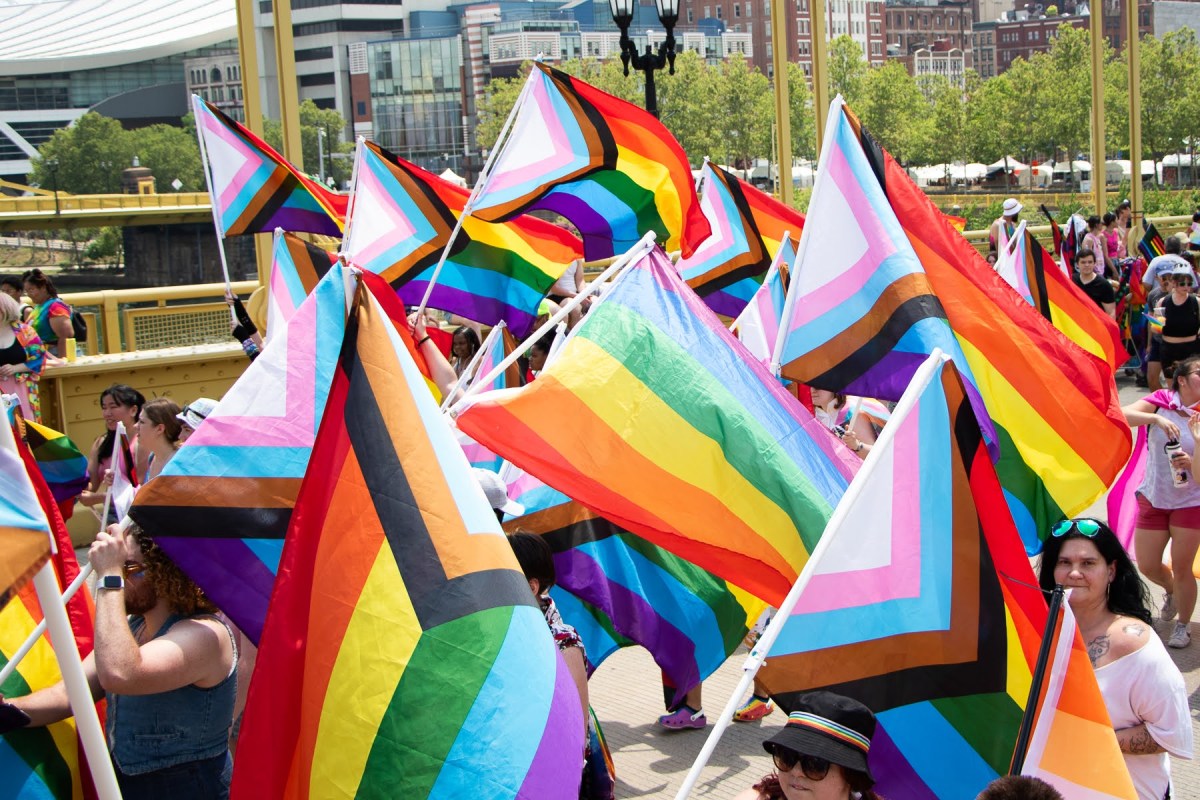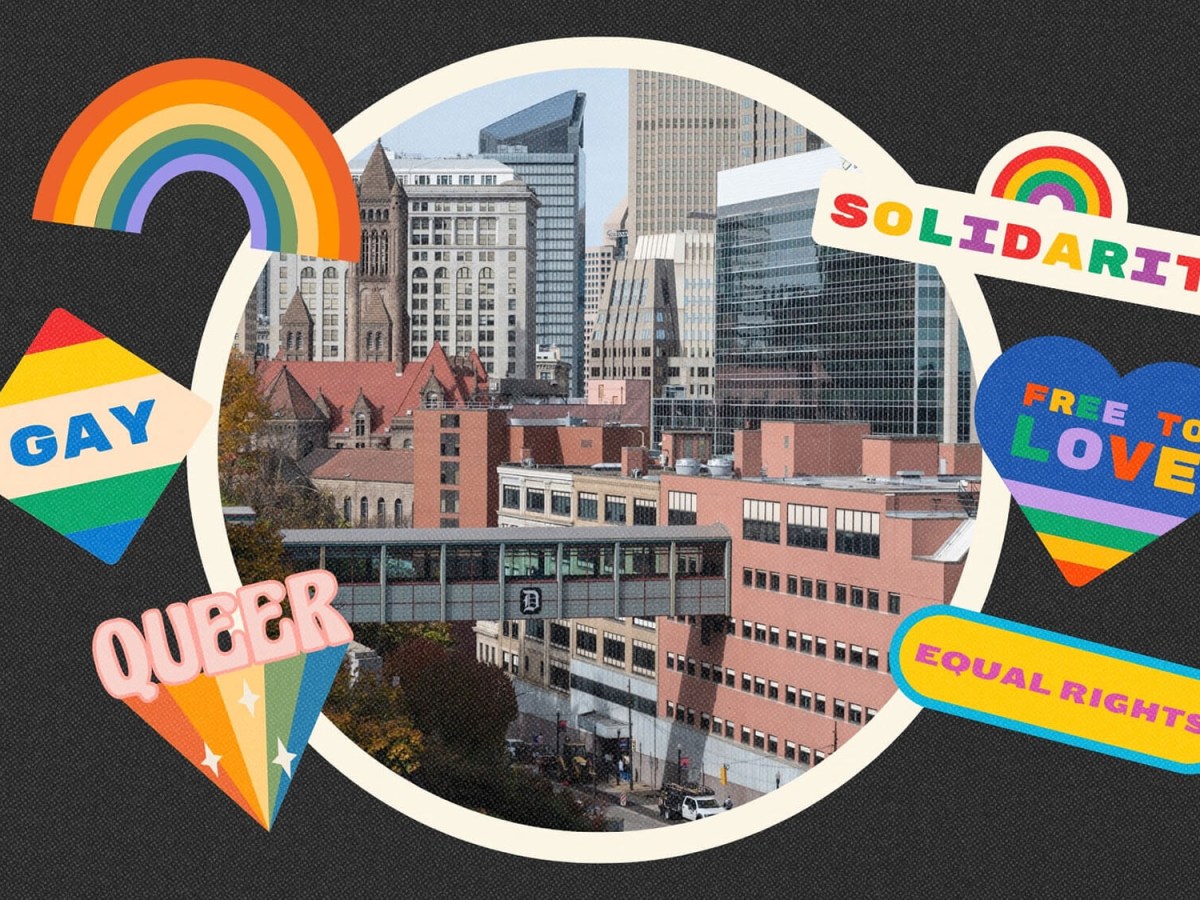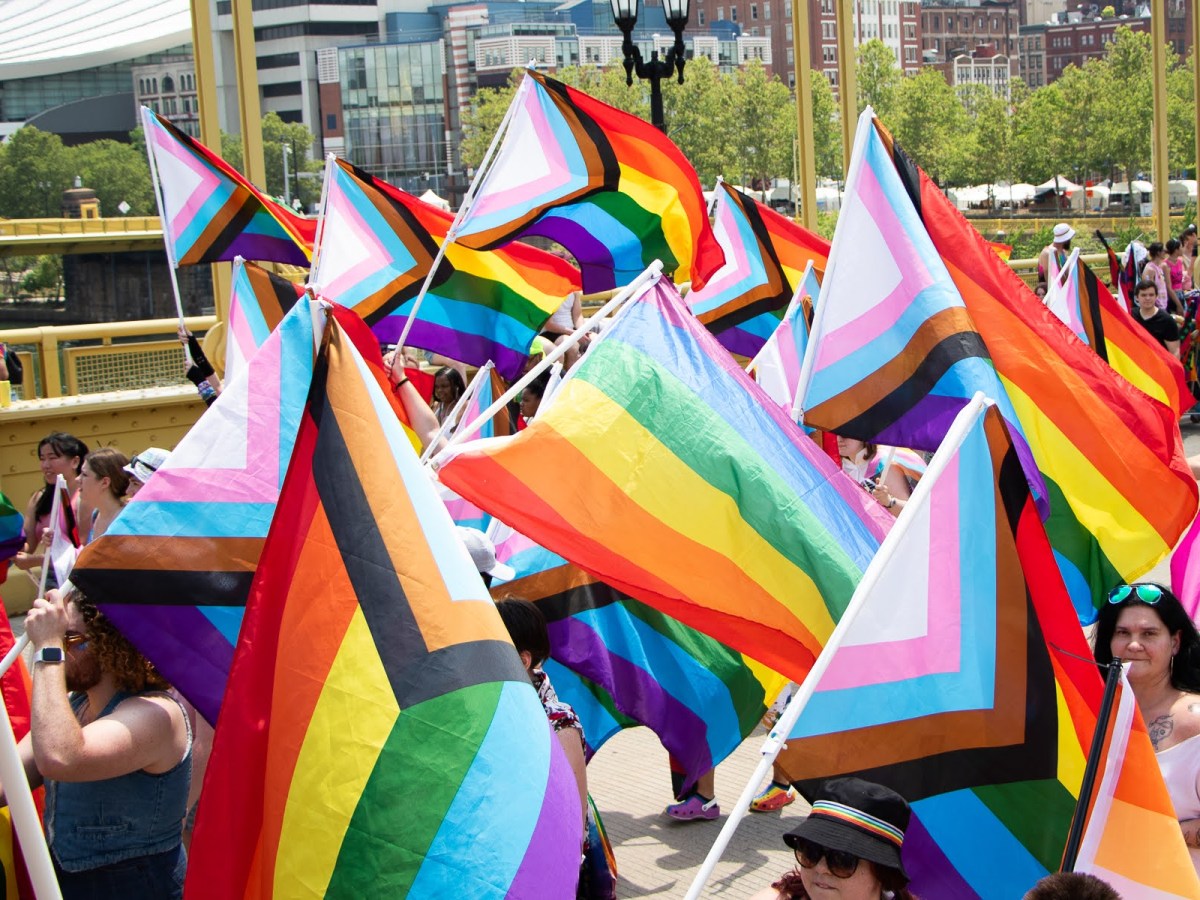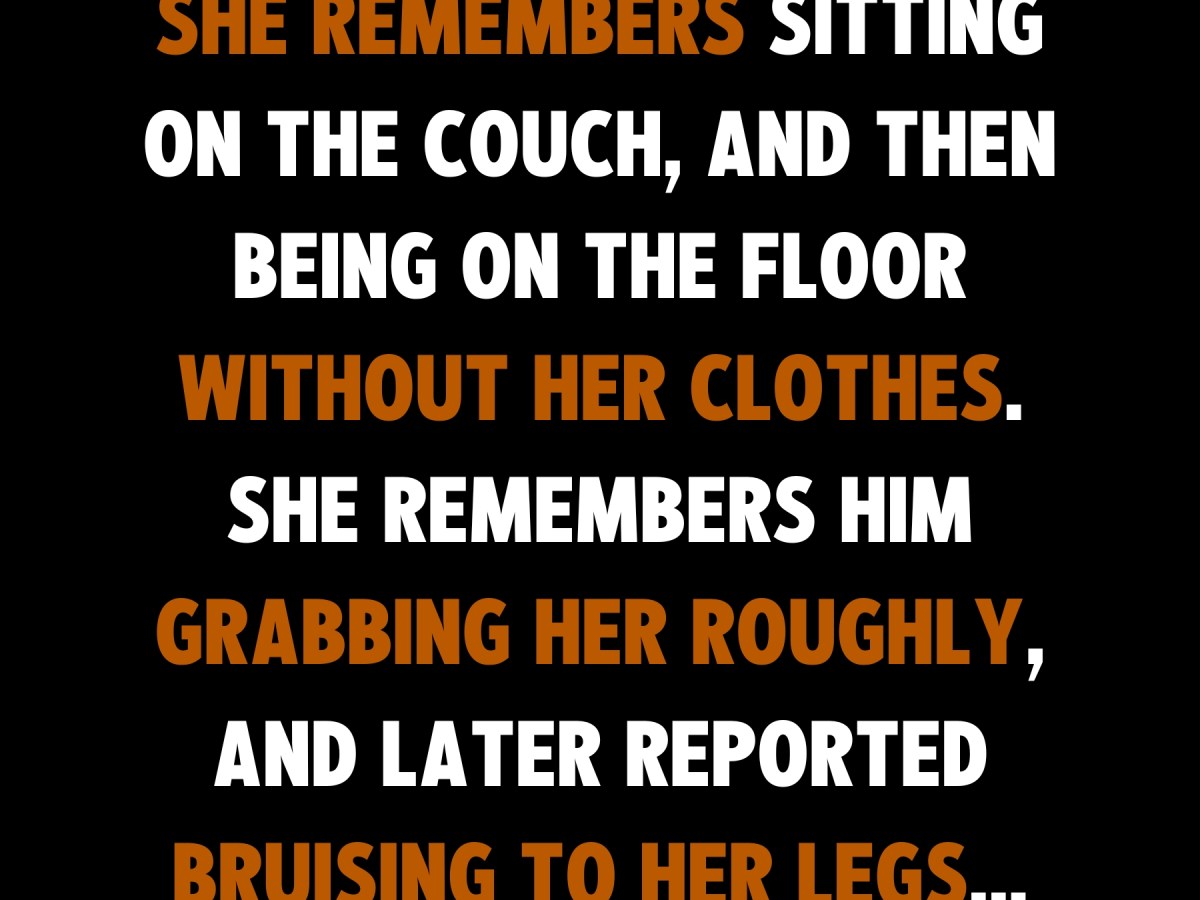Pittsburgh’s LGBTQIA+ Commission, created in 2020 by former Mayor Bill Peduto, started with the promise of action on behalf of the queer community of Pittsburgh.
Three years later, external displays of action have been on the sparse side — even at the admission of some of its members.
Much of the work has stagnated due to creating framework from nothing, communication challenges with the city’s administration, turnover and workload, according to commission co-chairs.
One of them, Sarah Rosso, said much of the work has consisted of figuring out how the commission can function as a group.
“I think the initial investment of time was really focused on building infrastructure,” Rosso said. “So there was no infrastructure prior to us starting and so there was a lot of time and investment from the commissioners to develop bylaws, structure and how we would operate.”
Read more: LGBTQ+ healthcare experiences inconsistent, lack some services for transgender Pittsburghers
The commission of 16 members, who have experience in various sectors including education, workforce development, homelessness and health, have met on a near-monthly basis since its first meeting in August 2021. The goals the city laid out for the commission include: developing action plans to address the challenges the Pittsburgh LGBTQ+ community faces, conducting studies about those challenges, working to develop cultural competency training opportunities and engaging with the Pittsburgh community on LGBTQ+ issues.
While some fruitful conversations have been held to advocate for the LGBTQ+ community within the city and the commission has made strides on developing its internal structure, the commission’s 20 meetings thus far have lacked public engagement and it hasn’t conducted a single study.
“The fact that I can’t, right now, fire off a list of studies that we’ve done for you, that is an issue,” said Leonard Orbovich, a commission member who advises and advocates for LGBTQ+ issues in regards to education. He added that he wants to do studies, but it hasn’t been possible due to budgetary and administration issues within the commission.
Read more: Fox Chapel Pride: Would my teenage self have believed it was possible?
Some efforts have, in part, been held up by what appears to be confusion with city counterparts.
Commission-city communication
From money to meetings, the city and the commission appear to have a communication problem.
The LGBTQIA+ Commission lost out on city funds to support its efforts in 2023 because, according to commission co-chair Sue Kerr, its members didn’t know they had to submit a budget plan.
What does the acronym LGBTQIA+ stand for?
LGBTQIA+ stands for lesbian, gay, bisexual, transgender, queer, questioning, intersex, asexual and other diverse and evolving identities.
“We had no idea that we would have to prepare our own budget because we were told [we would have the money] when we saw it in the budget,” Kerr said. “So we thought we were going to have it.”
The city allotted $40,140 to the commission in 2022, according to budget documents. But Olga George, press secretary for Mayor Ed Gainey, wrote in an email to PublicSource that the commission did not use the money allocated, and it was returned to the city’s general operating funds at the end of the year.
“This fiscal year, there’s no line item in the budget for the LGBTQIA+ Commission for general operating purposes,” George said.
Concerns over the lack of community engagement also involve the city. The commission’s website doesn’t say when its meetings occur. There are no links to meeting recordings, contact information or meeting minutes since April. And, although the commission says it wants the public to be able to attend at least virtually, no links to connect with the meetings via Zoom are posted.
Kerr said the city controls what goes on commission websites, and they have “no control” in updating the website themselves. Kerr said the commission maintains a Facebook page where they regularly provide information, but it also lacks a link to the meetings or mention of when the meetings are, and it isn’t linked on the city website.
“I understand the website is lacking, but I don’t have any other answer except to say you’d have to talk to the mayor’s office about the resources of systems around that,” Kerr said.
George said the city has not received requests from the commission to include information about when meetings occur, links to attend their meetings virtually or contact information for the commission. George added that the commission has not provided copies of the recent meeting minutes to be posted but said that, when received, minutes are usually added to the website “as quickly as possible.”
“This is the first time we’re being informed of these issues,” George wrote in an e-mail, “and it’s coming from you [a reporter] and not the commission directly, but we’re more than happy to update the items as they’re sent to us.”
What is available to the public? The meetings are recorded and livestreamed on the city’s YouTube channel. And, there’s a public comment form on the commission’s website where individuals can submit a comment about agenda items or other concerns. The form says: “Public comments will not be read during the meeting, but Commissioners may respond to some or all of the comments during the Commission meeting.”
Orbovich acknowledged there are “shortcomings” on the commission’s part in terms of outreach and communication but said there will be more “positive movement” for the commission.
“It is frustrating that we’re not doing a better job of putting ourselves out there,” Orbovich said. “Honestly, I’m struggling to speak, and what I’m not entirely sure of is my role.”
Progress amid shortcomings
One of the commission’s set goals is to interact with Pittsburgh City Council and produce annual reports to its members about the commission’s progress.
Kerr said the commission has set up meetings twice a year with city council to better understand how the commission can help influence or provide advice on the various legislation passed and provide an LGBTQ+ angle.
The commission has produced two annual reports for city council but did not do so this past year, Kerr said.
More stories on gender and identity
“I think we did a one-page document the first year and the second year,” Kerr said. “We did not produce an annual report and I say again, a lot of that is just because of the workload that we’re juggling.”
The city hopes to soon fill a part-time role that has been vacant since April for a staff member who would support various commissions’ work, George said.
The commission has also faced issues with turnover. According to Kerr: Its third co-chair, who was supposed to serve on the board until 2025, left in May. The board also saw the departure of three other board members since 2021.
The mayor has the power to nominate commission members. Kerr wrote in an email that at its Aug. 17 meeting, the commission appointed two current members to fill the vacancies on the executive committee. The commission is seeking to add other members, specifically one who would represent the Commission on Human Relations and another member with a housing specialty.
Acting on the mandate to address the challenges the Pittsburgh LGBTQ+ community faces, Kerr cited how the commission set up talks with the Pittsburgh Pirates after the 2021 controversy around the team hiring homophobic performers.
On the other hand, the commission remained silent in 2022 when several local radio stations aired anti-trans political ads.
Kerr said the latter incident “caught us off guard,” and the commission did not call the stations or attempt to set up meetings to get them taken down. Some members of the commission who are part of other advocacy groups denounced the ad campaign independently but not in an official capacity on behalf of the commission.
Within city hall, Kerr said the commission has helped in an advisory capacity to get liaison roles within the Department of Public Safety filled over the past year.
Orbovich said despite some of the issues, he is proud of the advocacy work the commission has done.
“Our goals have felt developmental — in terms of what we’re going to do, how we’re going to do it, who we are, how we function — and we’re still working through that process,” he said. “This has been an important part of my life’s work so far, and I hope we do better at it.”
Editor’s note: Guillermo Velazquez, a commissioner on the Pittsburgh LGBTQIA+ Commission, also serves on the PublicSource Board of Directors. He was not interviewed for this story.
Punya Bhasin is a freelance journalist in Pittsburgh and can be reached at punya13b@gmail.com
This story was fact-checked by Christine Graziano.









